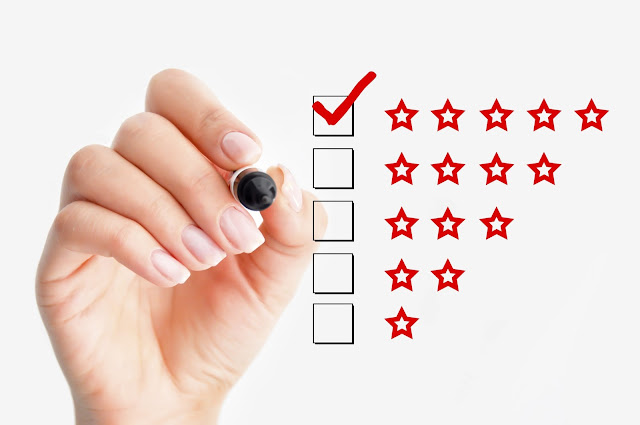Being a part of the industry, hotel reviews are something I always take with a pinch of salt, especially those making extremely negative remarks in online reputation sites. However, the internet is a place for opinions and if many more people join in the chorus to say negative remarks about the property, then I would rather give it a miss than taking a chance on a booking. But does that really mean that it is a bad hotel?
Truth be told, if more people are not happy with the property than are happy, then there must be something wrong with it. Guests express their dissatisfaction when they have bad experience. The first lesson of the service industry is that customer is the king, and in this age of hyper-activity in the internet, they rule.
As simple as coffee makers
I worked in a hotel where a decision was made to pull off all the coffee makers from the rooms. Management decided that it would save money in the long run because they would be cutting the cost of replacing and stocking this one guest amenity and could focus time and money in other areas. There was a café in the lobby and so at check-in, guests were given a voucher to use at the café. You would think the problem was solved. Well, not quite!
Guests began to leave negative reviews not only on travel sites, but also through the hotel’s internal guest feedback form. It seemed that one amenity affected their entire stay and made them question the worth of the room. To appease the guests, rate adjustments had to be made; additionally they were provided complimentary coffee from the café. Our ranking on TripAdvisor went down because our competitors continued to supply coffee-makers in their rooms and so guests felt they were getting more for their money. Another decision was made by the executive team and coffee makers were placed back in the rooms so that we could recover from the guest backlash.
Unknowingly (or maybe not) guests have placed themselves at the decision-making table of most hotels!
Stitching it together
 As revenue management evolves, it is getting away from simple rate management and is now incorporating customer relations and social media into its strategy. The more satisfied guests you have, the more likely the guest is to return and spend more money, as well as telling others so they will visit and spend money as well. Hence reputation has a positive correlation with the hotel’s overall Average Daily Rate (ADR) and revenue. The time has come for the revenue management department to work hand in hand with the marketing department.
As revenue management evolves, it is getting away from simple rate management and is now incorporating customer relations and social media into its strategy. The more satisfied guests you have, the more likely the guest is to return and spend more money, as well as telling others so they will visit and spend money as well. Hence reputation has a positive correlation with the hotel’s overall Average Daily Rate (ADR) and revenue. The time has come for the revenue management department to work hand in hand with the marketing department.
A recent survey by Laterooms.com suggests that 90% of travelers would avoid booking hotels labelled as “dirty” in online review sites. Sure, the situation might not be as bad as the guest made it seem, but the hotel cannot prevent the reviewer from expressing his/her opinion. However the beauty of online reputation sites is that most will give the hotel an option to respond. And the hotel needs to do just that – Respond! More so for negative reviews!
As an hotelier, facing these challenges can be a nightmare, especially when it hits you out of the blue. Therefore, it is essential to take an analytical approach to understand your strengths and weaknesses as per your guests and take a cohesive approach to address these issues. However since guests share feedback on various review and travel sites – all this valuable information lay scattered and unstructured. It is here that online reputation management tools play a big role in consolidating these guest reviews and provide them to hotels in structured reports. Usually, these tools pull guest feedback from various review websites including Qype, Holidaycheck, Yelp, Expedia, Facebook, Twitter etc.

Data is then compiled together into review reports which include guest details (as it appears on the site) along with their feedback and the rating they provide to the hotel. eRevMax, the company I worked for has its reputation management tool – RateTiger Review, which uses sentiment analysis to understand the guest’s emotion towards various aspects of the property. Keywords relevant to the properties are then identified, and ranked based on their popularity, frequency of mentions, and guests’ sentiments towards that category.
In other words, semantic analysis gives out a snapshot of what’s right and what’s wrong with
the property. For the hotel, it serves as a measurement of guests’ perception against intended brand positioning. For the marketing team this analysis provides a key insight into guests’ preference, which will help them customize their promotions to have a direct resonance with customer sentiment. From the operational perspective, you now know the areas you need to address the most. For instance, if a hotel continuously keeps getting comments that their rooms are outdated and uncomfortable; this is an indication to the management to invest in renovation to ensure guest satisfaction, as well as attract new guests. Guest review analysis works hand in hand with rate, occupancy, RevPAR and channel performance to provide hotels with the overall picture, and efficiently use Price Quality metrics to make strategic rate decisions.
Managing your feedback
The explosion of social media has made it almost impossible for hotels to ignore online reputation. According to recent studies, one third of consumers will not book a hotel room without first reading reviews first (Laterooms Survey, Nov 2012). Reviews with a rating on 4 – 5 generate more than double the conversion compared to a review with 1.0 – 2.9 rating on Expedia. Hotels that have a higher guest score typically will have better placement on the travel sites. A better placement on the travel site means more bookings. More bookings mean a higher room rate, and eventually higher revenue for the hotel.
Take the example of Slovenia based LifeClass Hotels & Spa, which has experienced a surge in repeat business by developing a post-stay, guest engagement through online guest review websites. Each property assesses the information and responds to guest reviews from social channels like Facebook, Yelp, etc along with those associated with sales channels (like Booking and Expedia) multiple times a day. “We have been actively monitoring guest reviews of our properties as well as those of our competitors. RateTiger Review has helped us to respond pro-actively to negative reviews, and address our product offerings,” observed Alen Milosevic. This has resulted in 30% revenue growth in 2012.
What’s more, an improved ranking has a positive correlation with direct booking. For 4C Hotels in London, pro-active guest engagement has resulted in a 5% increase in direct booking. “Whenever we see a negative posting, we action a proper investigation to find out what went wrong. We don’t make the same mistakes as before, we are able to identify them and address them,” says Asad Zaheruddin, General Manager at the hotel.
A strong visible position on guest review websites indicate that your Price Quality Index is working well, that will enable you to make the right pricing decisions based on RevPAR performance. This will allow the hotel to flex their rates based on a number of pricing strategies depending on booking levels. However, there are no short cuts. It is an evolving process that has to start today! As we move towards the age of consumer controlled brand conversations, hotels need to integrate customer feedback into their business approach and strategy planning.
Revenue management was always a game of chess and now even more pieces are being added to the board. By staying actively engaged with guests, hotels can ensure a more consistent and loyal base. Are you listening?
Authored by Rose Adegite, ex-Revenue Manager; adapted by Aparna Bhattacharya, PR Lead at eRevMax.














